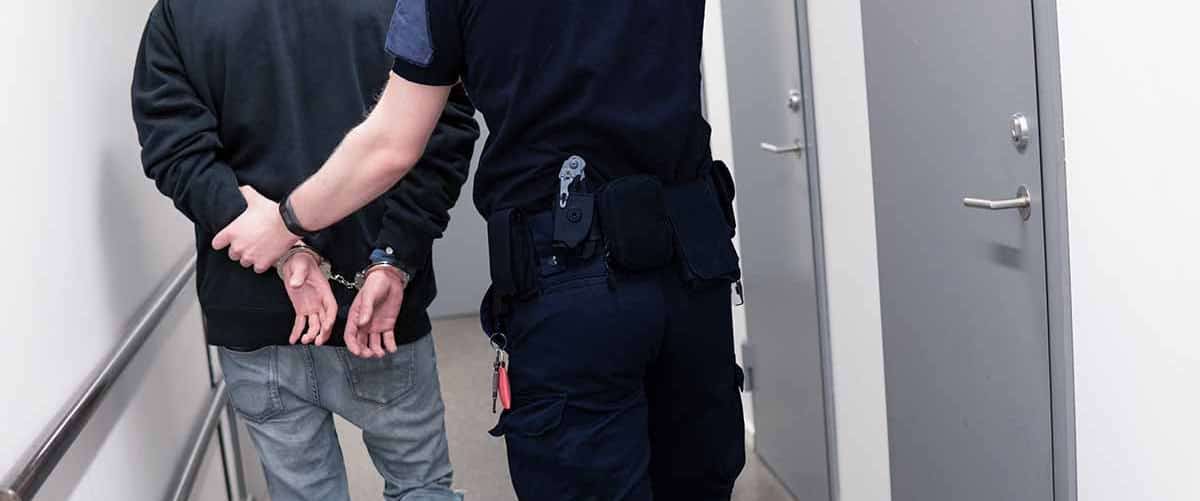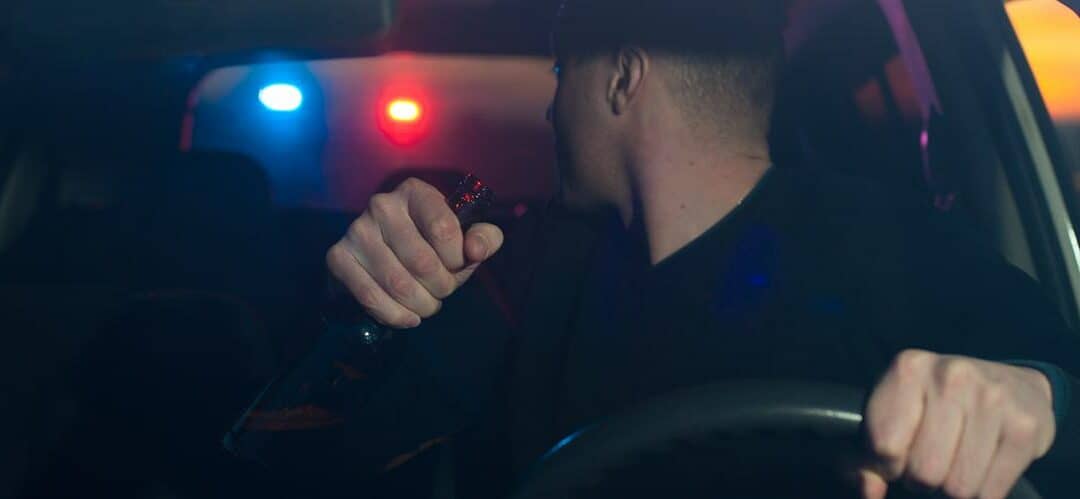Penalties for a Third or Subsequent DUI Offense
As a highly experienced DUI defense lawyer, I understand the significant impact a third DUI conviction can have on a person’s life.
In Arizona, the penalties for a third DUI arrest are severe, making it crucial to understand the potential consequences of this serious offense.
If you or someone you know is facing a third DUI charge in Arizona, it’s imperative to act quickly and seek the guidance of a skilled DUI lawyer to minimize the potential punishments.
A third DUI offense is a criminal charge that occurs when a driver is arrested for driving under the influence of alcohol, drugs, or both and has two prior DUI convictions within a 7-year lookback period.
It’s important to understand that a third offense DUI in Arizona will be considered a felony, which carries more severe sentences than a misdemeanor DUI.
Understanding the 7-year, or 84-month, lookback period of drunk driving charges is critical when facing a third DUI offense. This period refers to the amount of time that the court will consider previous DUI convictions when determining the severity of the sentences.
Any prior DUI convictions within seven years of the current offense will be considered and could result in enhanced penalties.
Seeking the guidance of a knowledgeable DUI defense attorney can help you navigate this complex legal landscape and potentially reduce or dismiss the charges against you.
This article will delve into the enhanced punishments for a third arrest in Arizona, including the Arizona three strikes law, differences in felony charges, and the possibility of reduced penalties.
Here are the topics that we’ll cover:
- Types of Arizona DUI Charges, Convictions, and Criminal Penalties
- Other Forms of DUI Offenses to be Aware of
- Understanding the 7-Year Lookback Period of Drunk Driving Charges
- Does the Arizona Felony Three Strikes Law Apply?
- Can a Phoenix DUI Defense Attorney get Penalties for a 3rd DUI Conviction Reduced?
- Consult with Your DUI Defense Attorney at the Shah Law Firm
As your trusted legal source, we will provide you with the knowledge and support you need to navigate the complexities of a 3rd DUI offense in Arizona. We aim to help you achieve the best possible outcome in your case and protect your rights throughout the legal process.
Note: As of September 29, 2021, a new law under House Bill 2187 (HB2187) has taken effect in Arizona. The law mandates that the Motor Vehicle Division (MVD) will revoke a person’s license for three (3) years if they have at least one aggravated DUI (28-1383) conviction in combination with any other DUI conviction under 28-1381 and/or 28-1382.
This is a significant change to the state’s DUI laws and highlights the seriousness with which Arizona views aggravated DUI offenses.

Types of Arizona DUI Charges, Convictions, and Criminal Penalties
There are three primary types of DUIs: regular DUI ARS 28-1381 (A)(1), extreme DUI ARS 28-1382 (A)(1), and super extreme ARS 28-1382(A)(2).
Each type of charge comes with its own set of sentences, and it’s crucial to understand the distinctions to ensure that you receive the appropriate legal counsel.
Regular DUI
A regular DUI also known as “Driving Under the Influence” in Arizona Revised Statutes (ARS) 28-1381(A)(1), is the most common type of DUI charge.
A person can be charged with a regular misdemeanor DUI if they are caught driving or in actual physical control of a vehicle while under the influence of drugs or alcohol to the slightest degree of impairment.
Arizona’s legal limit for blood alcohol concentration (BAC) is 0.08%. If a driver is found to have a BAC of 0.08% or higher, they can be charged with a regular DUI. The punishments for a regular DUI offense can include fines, jail time, community service, and mandatory alcohol education classes.
Extreme DUI
On the other hand, an extreme DUI is a more serious offense that can be charged when a driver is found to have a BAC of 0.15% or higher.
In Arizona, Extreme DUI is defined under ARS 28-1382(A)(1) and can carry enhanced sentences such as longer jail time, higher fines, and mandatory use of an ignition interlock device (IID). A first-time Extreme DUI offense in Arizona can result in a mandatory minimum of 30 days in jail.
Super Extreme DUI
A super extreme DUI can be one the most severe type of DUI offenses and can be charged if a driver is found to have a BAC of 0.20% or higher.
This offense is defined under ARS 28-1382(A)(2). It comes with even more significant retributions than Extreme DUI, such as longer jail time, higher fines, and mandatory use of an ignition interlock device.
In addition, a Super Extreme DUI conviction can seriously affect a person’s personal and professional life.
Other Forms of DUI Offenses to be Aware of
One of the most severe types of DUI charges is Aggravated DUI, which is a felony offense that carries more significant liabilities than regular DUI charges.
Aggravated DUI can be charged if a person is driving under the influence and causes serious injury or death to another person. It can also be charged if a person is driving under the influence while their driver’s license is suspended, revoked, or restricted.
The penalties for Aggravated felony DUI are severe and can include prison time, hefty fines, and mandatory use of an ignition interlock device.

Another type of DUI charge is driving under the influence of drugs, including Marijuana DUI and DUI on Drugs.
Marijuana DUI can be charged if a person is driving while impaired by marijuana containing THC or other drugs, including prescription or over-the-counter medications.
Arizona has no set limit for marijuana use while driving. If an officer determines that a driver is impaired by marijuana, they can be charged with driving under the influence of drugs.
The penalties for Marijuana DUI and DUI on Drugs can be similar to those of regular DUI charges, including jail time, fines, and mandatory use of an ignition interlock device.

Underage DUI is also a serious offense in Arizona, and the penalties for this offense can vary depending on the driver’s age.
In Arizona, the legal drinking age is 21, and if a person under the age of 21 is caught driving with any detectable amount of alcohol in their system, they can be charged with Underage DUI.
The penalties for Underage DUI are severe and can include fines, jail time, community service, and long-term suspension of your driver’s license.
Understanding the 7-Year Lookback Period of Drunk Driving Charges
When facing a DUI charge in Arizona, it’s essential to understand the 7-year, or 84-month, lookback period between your last DUI conviction and the new charge.
The lookback period refers to the amount of time that the court considers prior DUI convictions when determining the severity of the penalties.
In Arizona, the lookback period is seven years, and any DUI conviction within that period can result in enhanced punishments for subsequent offenses.
Here are the types of drunk driving charges that can apply under the 7-year lookback period:
- First DUI – If you have been charged with a DUI offense and have no prior convictions within the last seven years, the penalties may be less severe than if you have prior convictions.
- Second DUI – Facing a second DUI offense within seven years of your first conviction, the penalties will be enhanced, and you may face mandatory minimum jail time.
- Third or Subsequent DUI – If you are facing a third offense within seven years of your prior convictions, the penalties will be significantly enhanced, and you may face a felony aggravated DUI charge.
Understanding the 7-year lookback period is crucial when facing a DUI charge in Arizona.
It’s important to remember that any prior DUI convictions within seven years can result in enhanced penalties, regardless of the type of DUI offense.
As a DUI defense attorney, my goal is to protect your rights and help you navigate the complexities of the legal system to achieve the best possible outcome for your case.
If you or someone you know is facing a DUI charge in Arizona, contact a skilled DUI lawyer as soon as possible to ensure your rights are protected.

Does the Arizona Felony Three Strikes Law Apply?
The Felony Three Strikes Law, also known as the “habitual offender” law, is a statute in Arizona that provides harsher punishment for those who commit a violent felony three times.
This law was enacted in April of 2006 with the passing of SB1444.
If a person is convicted of a third felony, imprisonment is required, and there are only a few exceptions where commutation may be allowed.
This law does not offer a suspension of sentence, probation, or release.
The third strike law applies to any person who has been convicted of a felony with two previous “serious offense” convictions from separate incidents.
A violent crime is an offense that includes a weapon, arson, burglary, kidnapping, and most sexual offenses, such as rape and assault.
The severity of the punishment depends on the length of time between felonies, the seriousness of the crime, and the order in which the crimes were committed.
Here are the different felony crime levels without three-strikes enforcement in Arizona:
- Class 6 Felony: This category carries a maximum punishment of 2 years in prison, 3 years of supervised probation, and a fine of up to $150,000 plus surcharges.
- Class 6 felonies in Arizona can include charges such as possession of drug paraphernalia, resisting arrest, aggravated DUI, and theft.
- Class 5 Felony: This category carries a maximum punishment of 2.5 years in prison, 3 years of supervised probation, and a fine of up to $150,000 plus surcharges.
- Examples of class 5 felony offenses include theft of a credit card, unlawful flight from law enforcement, criminal damage, theft, and aggravated assault on a police officer.
- Class 4 Felony: This category is punishable by a maximum of 3.75 years in prison, 4 years of probation, and a fine of up to $150,000 plus surcharges.
- Class 4 felony offenses in Arizona include aggravated DUI, possession of narcotic drugs, possession of dangerous drugs, misconduct involving weapons, forgery, identity theft, and burglary.
- Class 3 Felony: This category is punishable by up to 8.75 years in prison, 5 years of probation, and a fine of up to $150,000 plus surcharges.
- Examples of class 3 felony offenses include theft of a motor vehicle, aggravated assault, possession of marijuana for sale, theft, burglary, aggravated robbery, and trafficking stolen property.
- Class 2 Felony: This category is punishable by up to 12.5 years in prison, 7 years of probation, and a fine of up to $150,000 plus surcharges.
- Class 2 felony offenses in Arizona include possession of narcotic drugs for sale, possession of dangerous drugs for sale, manslaughter, aggravated assault, sexual assault, child prostitution, armed robbery, assisting a criminal street gang, burglary, discharging a firearm, theft, and fraudulent schemes.
- Class 1 Felony: This category is the most severe and is reserved for murder charges only. A class 1 felony in Arizona carries a minimum of 25 years to life and has a maximum of the death penalty.
Felony violent crimes that will enforce the 3rd Strike law:
The three strikes law applies to any person convicted of a violent felony with two previous violent felony convictions from separate incidences.
Violent crimes include the following.
- Offenses that included a weapon
- Arson
- Burglary
- Kidnapping
- Almost all sex crimes, such as sexual assault or rape
- Aggravated Assault
If you are facing the felony three-strikes law in Arizona, the punishment will be severe compared to those convicted of the same crime but not facing the mandatory three-strikes law.
Therefore, hiring an experienced criminal defense attorney immediately is crucial to ensure your rights are protected and that you receive the best possible legal counsel.
Can a Phoenix DUI Defense Attorney get Penalties for a 3rd DUI Conviction Reduced?
If you are arrested for a third time in Arizona, the 84-month lookback time frame will be crucial to your sentencing guidelines.
However, hopeful scenarios exist where each penalty might be reduced or dismissed.
It’s essential to consult with a DUI attorney who can examine the details of your case and determine the best course of action for your defense.
DUI defenses that can help reduce or dismiss a third DUI offense in Arizona include challenging the initial stop or arrest, questioning the reliability of field sobriety tests or breathalyzer results, and exploring alternative explanations for any observed signs of impairment.
A skilled defense attorney like Arja Shah can thoroughly investigate the case, gather evidence, and present persuasive arguments to the court.
Reducing a 3rd DUI charge to a misdemeanor DUI or even getting the charge dismissed entirely may be possible.
The outcome of your case will depend on the specific facts and circumstances involved, as well as the expertise of your DUI attorney.
Arja Shah is an experienced Phoenix DUI attorney who is well-versed in the DUI laws of the state of Arizona. She has helped over 3,000 clients achieve favorable outcomes in their criminal cases and can work tirelessly to help you as well.
Consult with Your DUI Defense Attorney at the Shah Law Firm

At the Shaw Law Firm, we understand the importance of providing excellent legal representation to those facing Underage DUI charges.
Our law office of skilled attorneys has a proven track record of successfully defending clients against DUI charges. We are committed to helping our clients understand their legal options and developing a strategy to achieve the best possible outcome.
If you have been charged with a DUI, contact the criminal defense lawyers at Shaw Law Firm today for a free consultation. Call us now at (602) 560-7408.
